Randomness in AI – randomness creating chaotic order in architecture
// Key Argument
Artificial Intelligence creating optimal design strategies over conventional strategies.
//Context
Statement of Context: “Randomness in Artificial Intelligence controlling Chaos to Ordered Chaos”
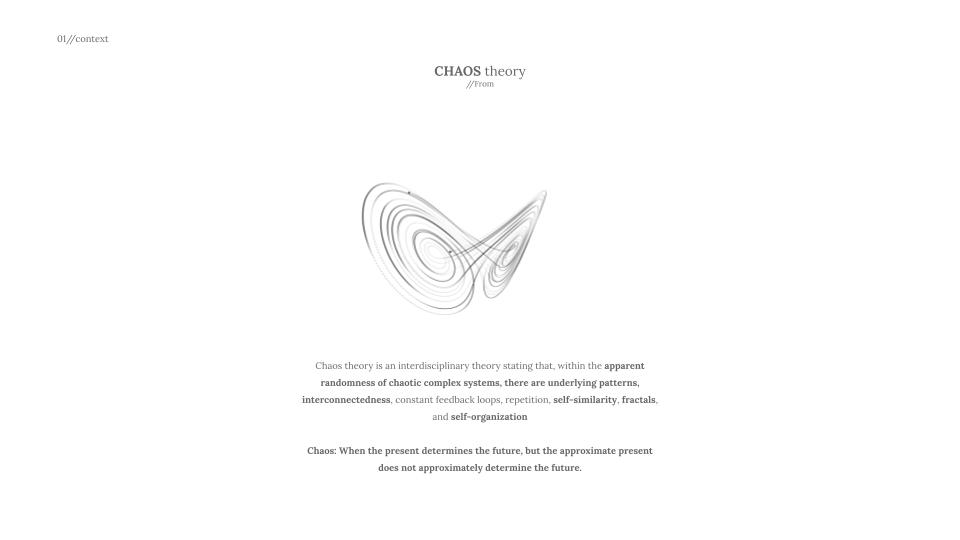
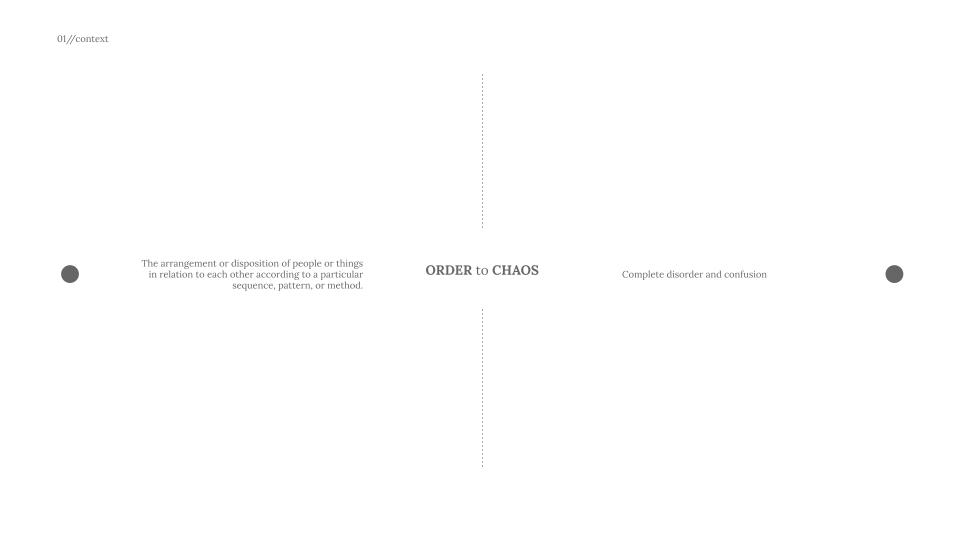
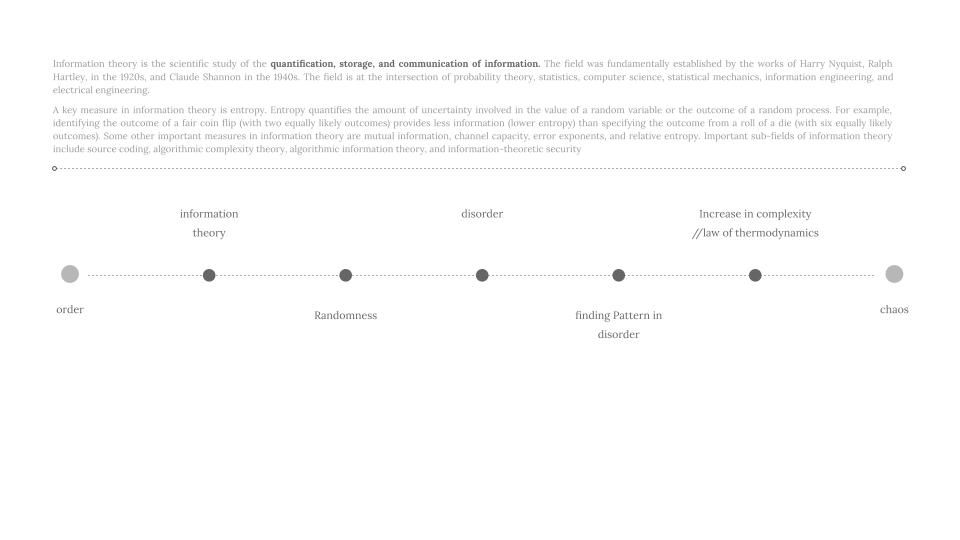
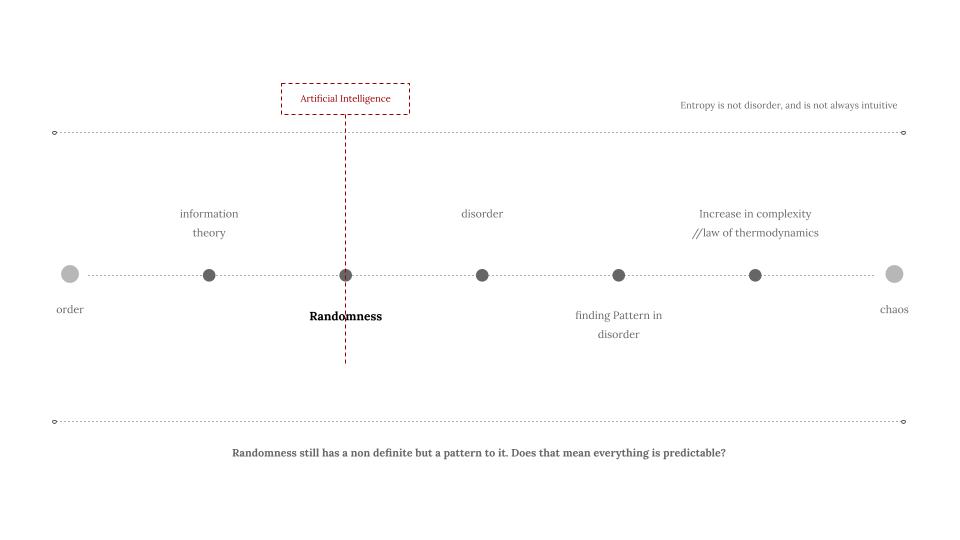
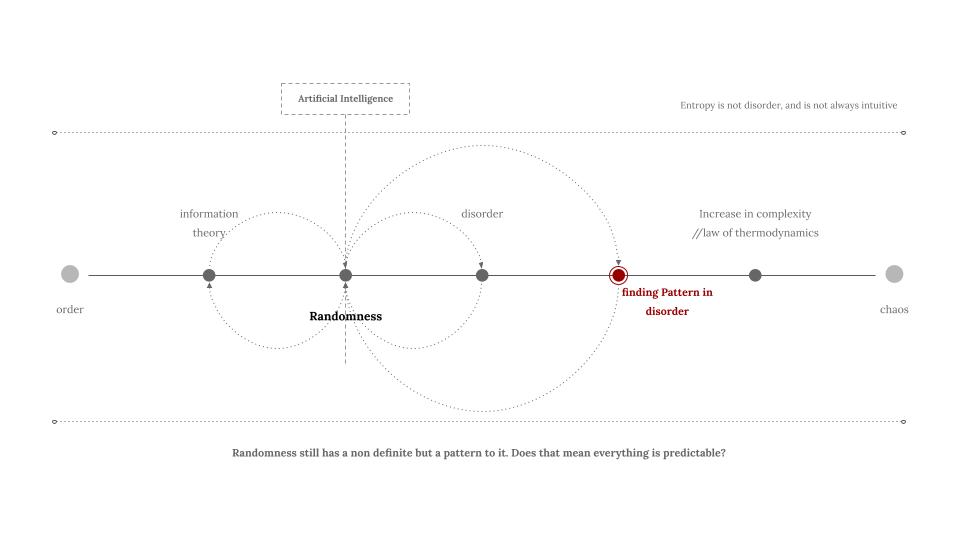
Artificial Intelligence
The traditional problems (or goals) of AI research include reasoning, knowledge representation, planning, learning, natural language processing, perception and the ability to move and manipulate objects. Tools that are used in AI, including versions of search and mathematical optimization, artificial neural networks, and methods based on statistics, probability and economics. The AI field draws upon computer science, information engineering, mathematics, psychology, linguistics, philosophy, and many other fields.
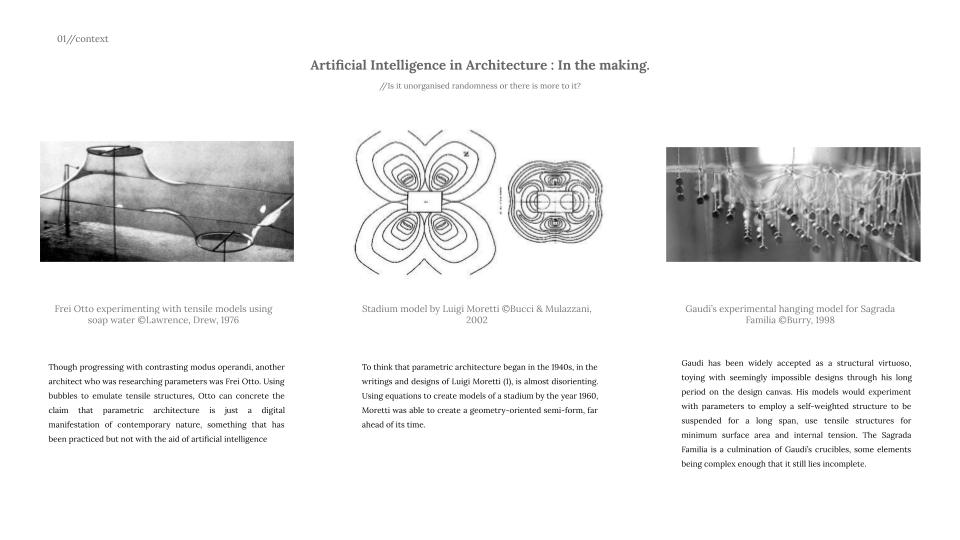
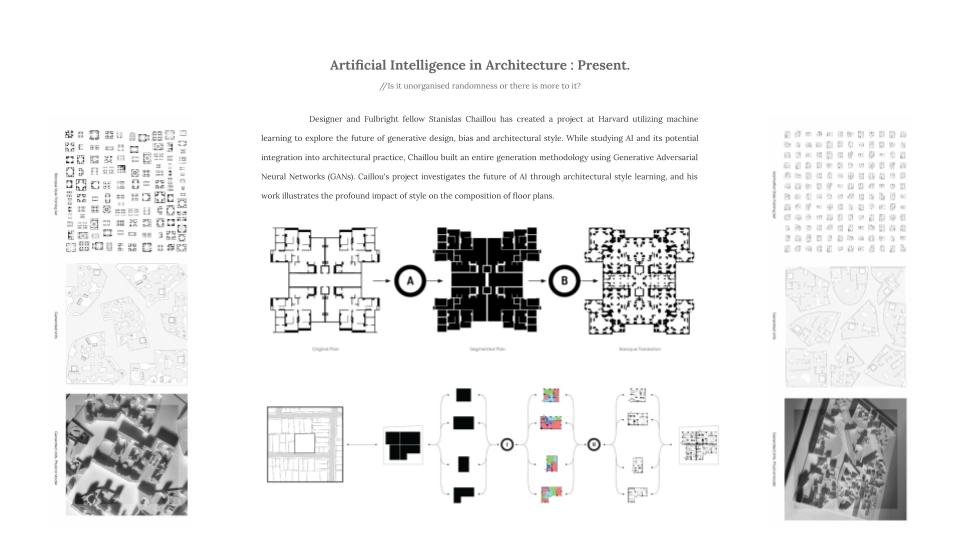
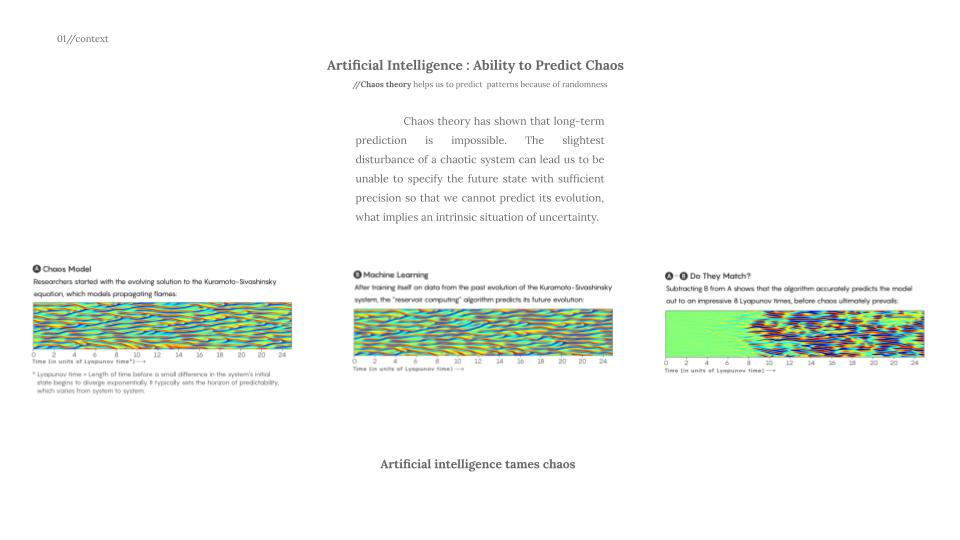
Artificial Intelligence helps us predict patterns because of randomness.
//Key Questions
//Is randomness in AI essential for a better design definition?
//How can randomness help create genetically optimal solution?
//As randomness is one of the factors for getting optimal solution should design approaches follow similar theory?
//Is randomness the most important parameter?
¿ randomness is adopted in every design field ?






//Hypothesis

//Methods and Methodology






//Conclusion
To think architecturally is to imagine and construct new worlds, integrate systems and organize information which can be provided by AI and is tamed by randomness.
Randomness in AI// Theory and Knowledge is a project of IAAC, Institute for Advanced Architecture of Catalonia developed in the Master in Advanced Architecture (MAA02) 2020/21 by:
Students: Madhavi Ojha and Vatsal Kapadia
Faculty: Jordi Vivaldi & Manuel Gausa